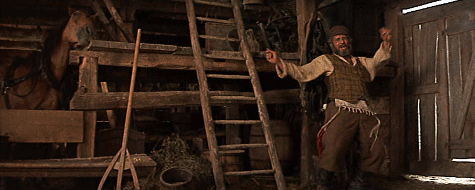
|
| If I were a rich man, Ya ha deedle deedle, bubba bubba deedle deedle dum |
"If I were": Try these lyrics on for size!
- If I were a rich man... (Fiddler on the Roof)
- If I were king of the forest... (The Wizard of Oz)
- If I were a carpenter.. (Covered by many artists)
- If I were a boy... (Beyonce)
And poetry:
- If I Were In Charge of the World, (Judith Viorst)
- If I were King (A.A. Milne)
So, now, how would you say:
- If I was/were the party host, I'd change my hat every half hour.
- I wish I were/was an elephant.
Hint: "Were" is generally accepted as correct. Grammatically, I'm talkin' about the subjunctive mood, which is "the verb form used to explore a hypothetical situation or to express a wish, a demand, or a suggestion."
It's so common in song lyrics, poetry, speeches--even everyday conversations-- that many people pick it up simply from exposure to it without realizing. Mwah ha haaaaa it has crept into your very brain! ...Maybe.
But also many other people aren't aware of the subjunctive. I had a lively discussion with my Dad--very well read, well educated, with 70+ years of experience--about the existence of the subjunctive mood. Because he apparently had not picked up the phrasing "If I were..." and thought it was wrong. "Discussion" with my stubborn, always-right Dad--too funny!
In conclusion: You don't have to know the terms "subjunctive" or grammatical "mood" to now know how to do it--just think of these examples.
(There are other subjunctive forms, and there are other moods, and I'd talk about those if I were in good form or the right mood [see what I did there?]...but I'm not, so the rest is left as an exercise for the reader.)
P.S. Yes, "If I was" is also heard in conversational English. I wonder whether subjunctive mood will eventually exit the grammatical world stage right? But until it's official--subjunctive all the way, babee!

|
| If I Were King (poem by A.A. Milne, art by E. H. Shepard) |


